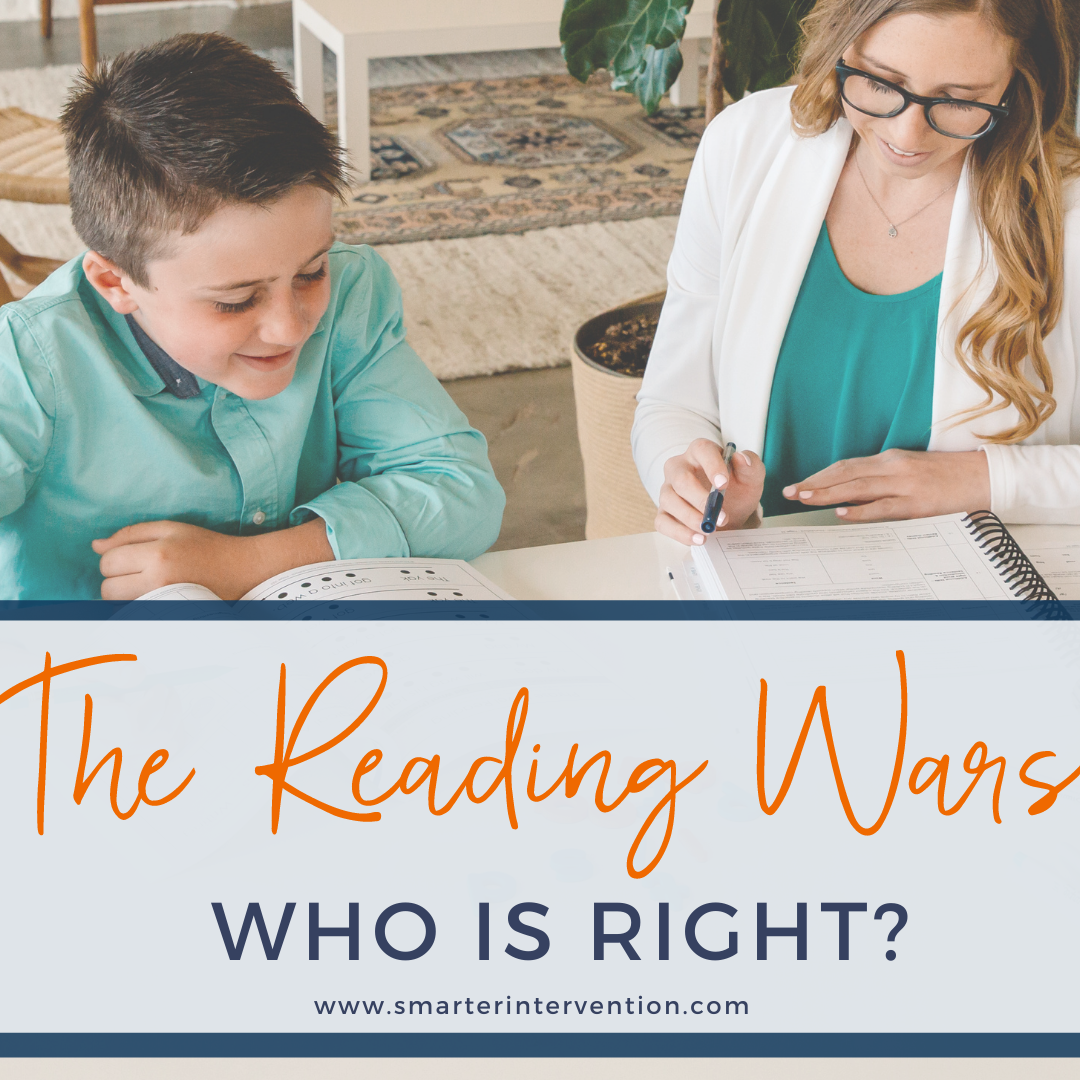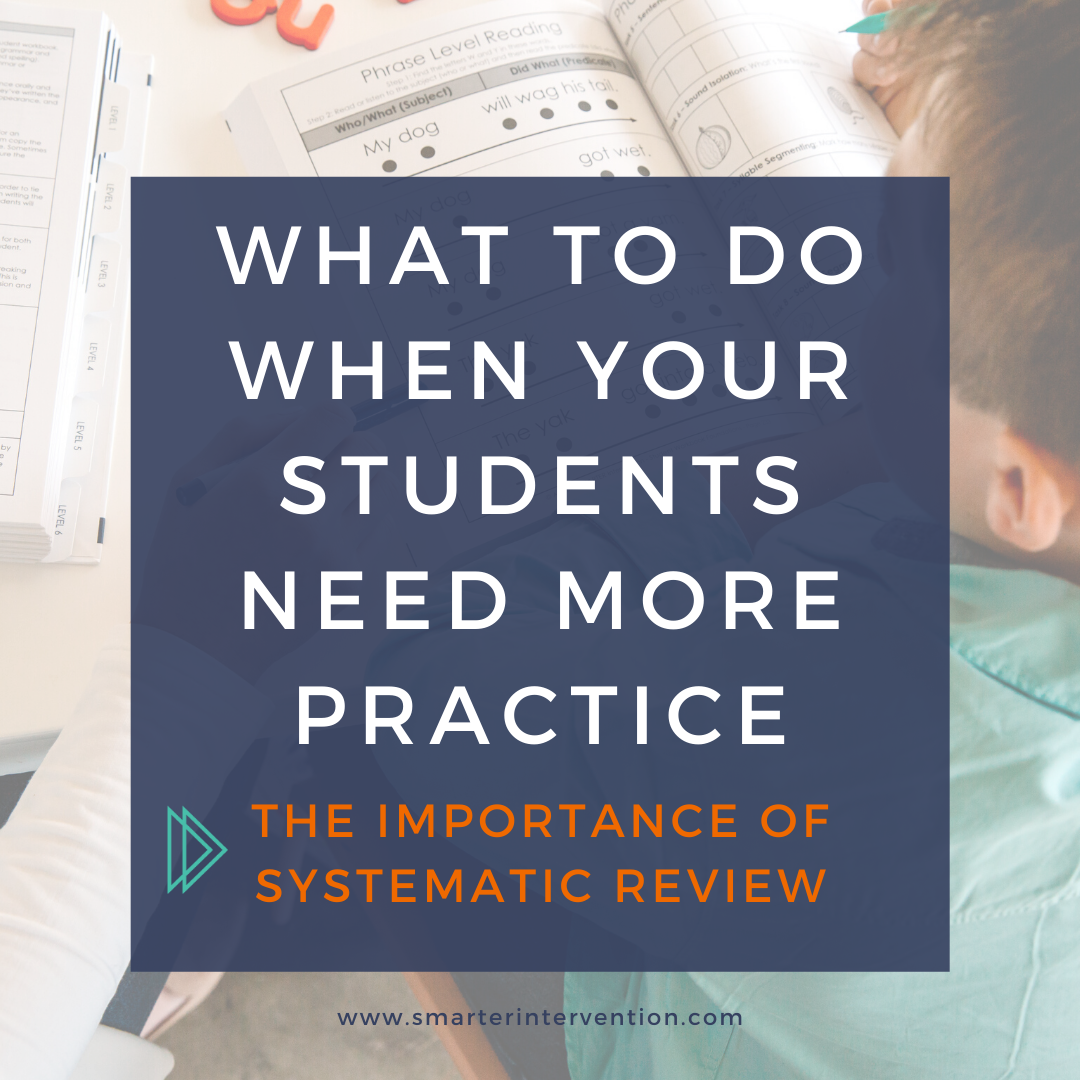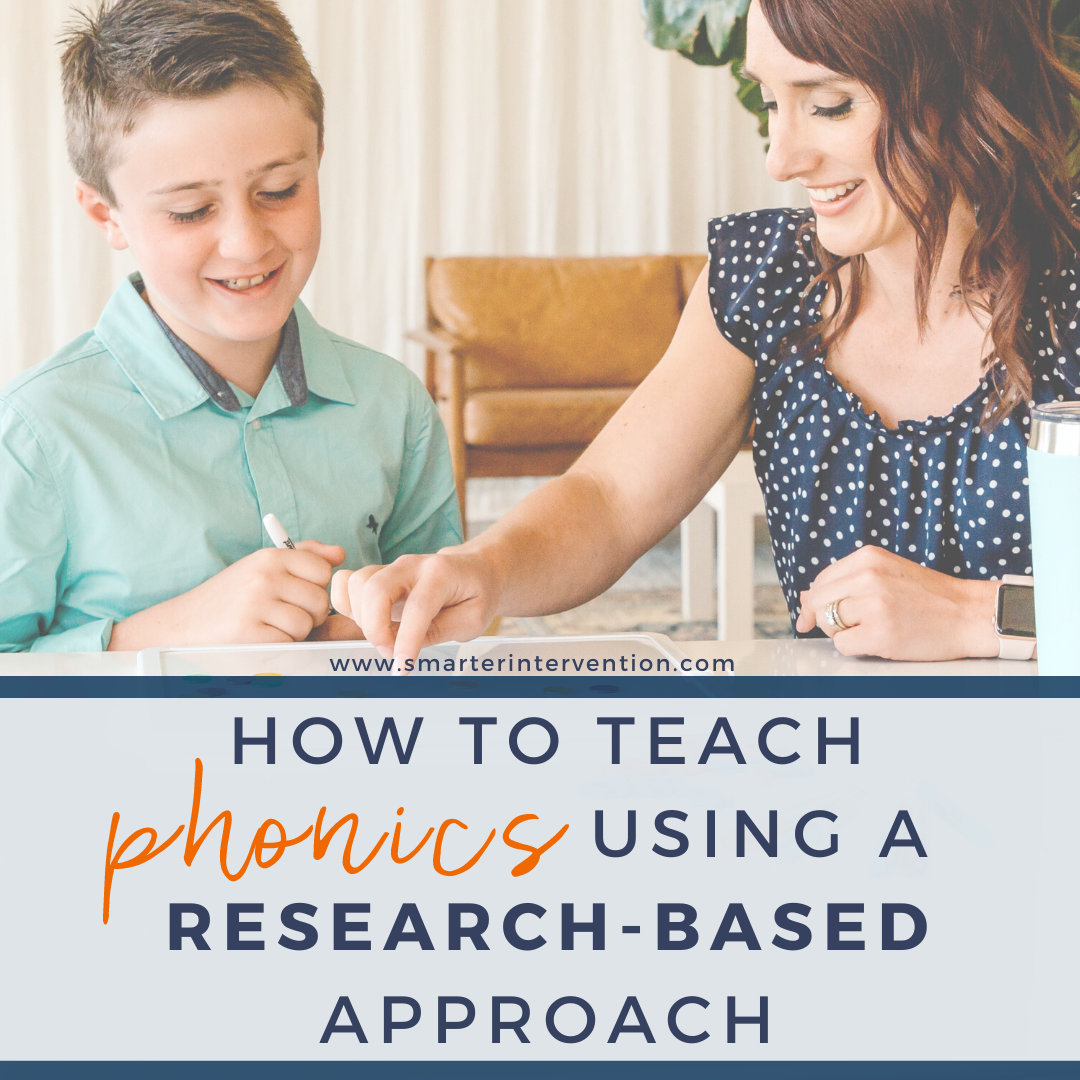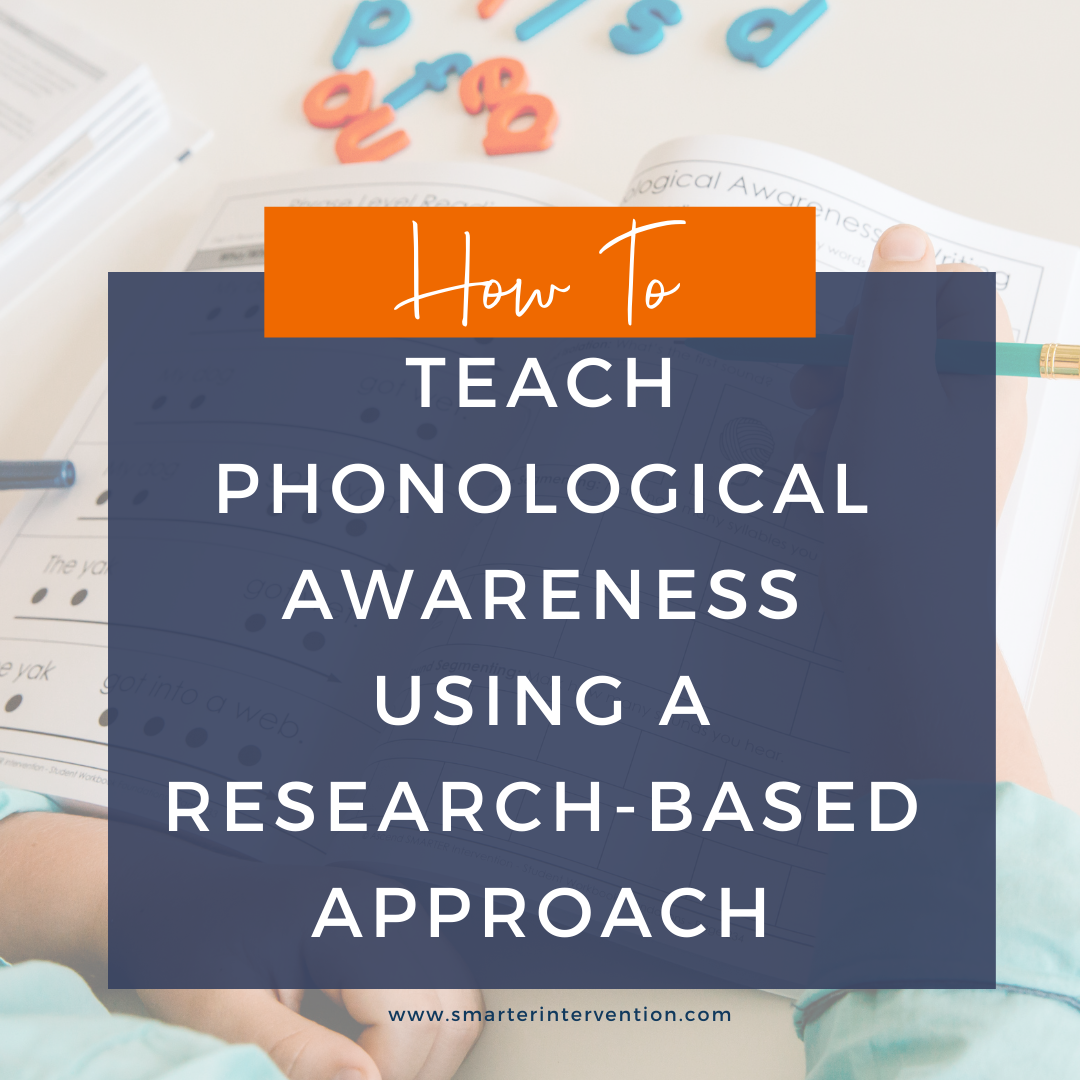Science-based literacy resources and articles
for families, educators and schools
Search by Category:
Categories
- Advocacy
- Business
- Comprehension
- Data Tracking
- Differentiation
- Dyslexia
- Evaluation and Assessment
- Executive Functioning
- Games & Activities
- Helping My Child At Home
- IEP/504 Plan
- Lesson Planning
- Math
- Online Intervention
- Organization
- Parents
- Phonics
- Phonological Awareness
- Reading Comprehension
- Reading Fluency
- Research
- SLP
- Spelling
- Vocabulary
- Writing
How Do I Fit It All In? Organizing Your Literacy Block to Align with the Science of Reading
Following the Science of Reading requires many lesson components we should be including in our literacy instruction.
Between explicitly teaching the 5 Core Components of Literacy, targeting student needs, tracking data, and pulling review activities - it can definitely feel like a lot!
But here’s the thing, research-based instruction that aligns with the Science of Reading does not have to be hard. All you need is a clear framework you can use to plan your lessons in alignment with research-based principles so that you know you are covering everything you need without it feeling super overwhelming!
Effectively Implementing the Science of Reading: Combining Science and Art
When we look at the practice of teaching reading, there are two steps that we follow. Check out the blog to learn what these steps are and how to best combine the science/what the research tells us with your own data & experiences with students for the most effective SOR-based lessons.
Instead of saying, "The research says..."
How many times have you heard someone (or yourself) say, "but the research says [insert an excerpt from an article here]" to validate an approach or strategy?
We get this, it's entirely well-intentioned and honestly good in many ways BUT there's a better way to validate our approach and strategy in our literacy instruction.
Instead of using "the research says…" we should be using our own experiences, our own students, and our data to be driving us. Keep reading to learn more.
The Reading Wars - Who is Right?
Raise your hand if you’ve ever heard of the reading wars.
This “battle” has been a long-standing argument between whole-language and phonics-based instruction. Over the last few decades (as more research has been done as a part of the Science of Reading movement), we have seen the pendulum swing back and forth and back again between these two reading approaches.
So… how do we know which is "right?" Keep reading to learn more about these two approaches and which is a fit for your students.
How to Use SOR to Support Students Who Struggle with Word Recognition & Comprehension
We’re so glad you’re here. Now over the last month, we’ve been talking all about how to use the Science of Reading and effective reading instruction strategies to support students with varying needs. We’ve talked about supporting students who are reading on grade level, supporting students who struggle with decoding and word recognition, we’ve talked about supporting students who struggle with comprehension, and today we’re going to talk about our last group of students, students who struggle with word recognition and comprehension. Click through to learn more!
How to Use SOR to Support Students with Poor Word Recognition
This week, we are taking a look at how we can best support students who struggle with word recognition (or sounding words out for reading & spelling).
Research tells us that between 70-80% of students who are struggling with reading specifically struggle with word recognition. In order for these students to read effectively, it is critical that we are able to teach them how to decode and encode. Keep reading to learn how we support this group of students and grab some of our favorite resources!
How to Support Struggling Readers Based on the Science of Reading
In a 2019 study conducted by the National Center for Education Statistics, it was determined that over 66% of 4th graders were not reading at a proficient level. Part of this is because of the gap that exists between research-based practices and what’s being implemented in the classroom. Unfortunately many large curriculum publishers adopted by schools were not staying current with the ever-expanding body of research on the cognitive development of students.
In order to close this gap, we need to implement practices in the classroom that align with the Science of Reading. Check out this blog for ideas that you can use to support your students!
How to Build Fluency & Comprehension at the Passage Level
When working with students, our end goal is always that they can functionally read and write. A big part of this is the ability to read at the passage level and derive meaning from the text.
Luckily - building fluency and comprehension at the passage level doesn’t have to be hard. Keep reading to learn how you can incorporate this instruction into your reading lessons!
How to Build Fluency & Comprehension with Sentence Reading
There are a lot of misconceptions when it comes to reading fluency and comprehension, including the fact that it is difficult to support, means that students need to be reading faster, and is reserved for when they can read at the passage level. Today - we are breaking down these misconceptions and discussing how you can use sentence-reading to help build your students’ fluency & comprehension skills!
How to Fit Vocabulary in to Your Reading & Writing Lessons
Vocabulary instruction is necessary in order for phonics to matter. Keep reading to learn how you can easily & effectively incorporate vocabulary instruction into your reading & writing lessons.
How to Get the Most Out of Your Literacy Lessons
Have you ever thought to yourself - “How in the world am I EVER going to fit everything into my lessons?!” or maybe, “How can I better support my students?”
We certainly have!
The great news - we can actually make our interventions lessons MORE effective WITHOUT adding a ton of additional time. Keep reading to learn how!
How To Explicitly Teach Phonics Rules
It’s no secret that research tells us we need to teach rules explicitly - but what exactly does that mean?
Today, we are going to break down exactly what “teaching rules explicitly” means as well as walk you through how you can use this approach in your lessons!
What To Do When Your Students Need More Practice: The Importance of Systematic Review
Have you ever looked through your students’ lesson data and thought - “gosh, they just aren’t getting this?”
We’ve all been there. Today - we are going to break down what you can do when students need more practice and the importance of systematically reviewing previously learned concepts.
How To Fit Phonological Awareness into Your Reading & Writing Lessons
It is no secret that phonological awareness skills are a key component to reading and spelling, but for a long time it felt like the way to effectively fit these drills into our lessons WAS a secret! After a while of looking at the data (and some trial/error!), we found a way that worked for us and want to share it with you!
How to Teach Sight Words using a Research-Based Approach
In reading intervention we hear terms like sight words, red words, high-frequency words, phonetically irregular words, heart words, and so many other variations used every day. Today, we are jumping in to explain what these words actually are, and what the research says about how we should be teaching them!
How to Teach Phonics using a Research-Based Approach
In the field of reading - phonics is a pretty common term. However, there is much more to phonics & teaching the skills it encompasses than you might think.
Today, we are going to break down what exactly phonics is, and how we ACTUALLY should be teaching these skills to our students. Here’s the thing - there’s a LOT of information out there and it can definitely feel overwhelming if you are trying to pull all of this together alone. The good news though? It doesn’t have to be hard! Our goal is to give you a clear framework you can use to implement research-based instruction!
How to Teach Phonological Awareness using a Research-Based Approach
First things first, what is phonological awareness?
We’re so glad you asked, at the simplest level - it’s understanding the sounds of our language. It includes skills that we need to break words up into individual sounds and blend sounds together in order to “sound words out.” Phonological awareness DOES NOT require any knowledge of letters. Students could complete phonological awareness drills completely in the dark (meaning they don’t need to be reading or recognizing letters at all). The number of sounds in words and letters in words are not always the same!
The 3 Things Your Literacy Intervention Materials MUST Include
In this field, we are bombarded with theories, approaches, information and often, it can be difficult to know exactly what resources you need.
Whether you are looking for activities to supplement a program that your school has provided you with, or, you are looking for a comprehensive curriculum, there are a few things that you should always be looking for. Keep reading to learn more…



















